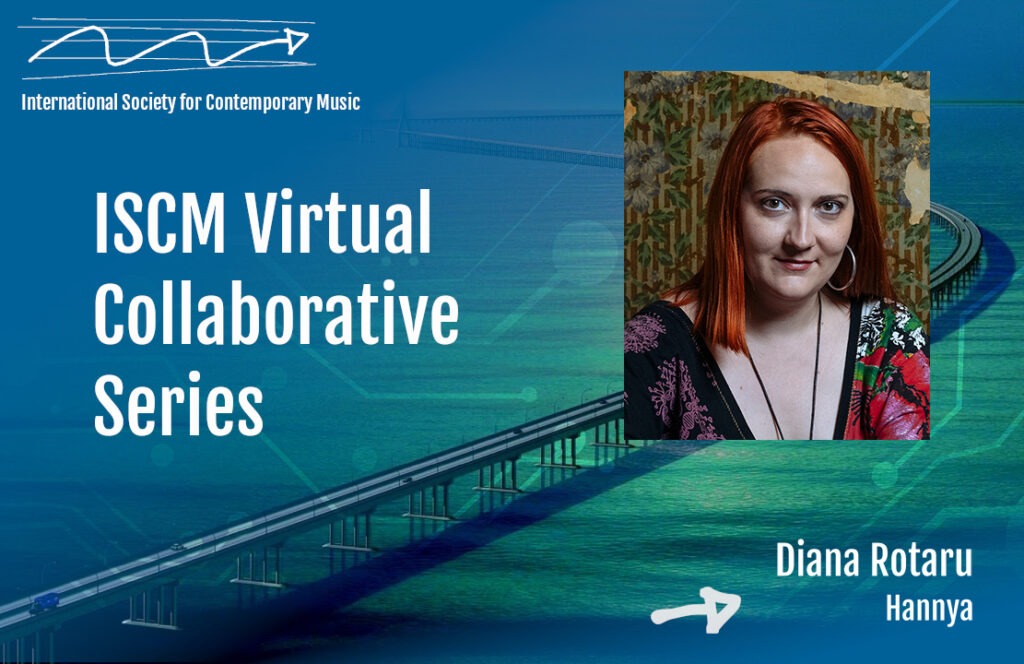Diana Rotaru: Hannya

(Submitted by ARFA)
Romanian composer Diana Rotaru (b. 1981) has written from chamber and orchestral music to chamber opera and soundtracks for multimedia or dance shows and short films. Her music explores different expressive directions, from hypnagogia or pre-oneiric aesthetics, feminine psyche, humor or imaginary folklore. She is also active as a promoter of new music in Romania as the coordinator of the Romanian Music Information Center (CIMRO). Since 2019 she is President of the ISCM Romanian Section and Artistic Director of the MERIDIAN international new music festival. Diana Rotaru studied composition with Ştefan Niculescu and Dan Dediu at the National University of Music in Bucharest and with Frédéric Durieux at the Conservatoire National Superieur de Musique et de Danse de Paris (Erasmus). She participated in different courses such as Acanthes (Metz, 2008), Voix Nouvelles-Royaumont (2002 and 2006), or the International Bartok Seminary (Szombathely, 2003). Resident at the Cité Internationale des Arts in Paris (the George Enescu grant from the Romanian Cultural Institute, 2007) and at Villa Sträuli, Winterthur (2011). Rotaru has won numerous prizes, among which the Romanian Academy’s George Enescu Award (2010), the ISCM-IAMIC Young Composer Award (World Music Days, Vilnius, 2008), the Irino Prize (Japan, 2004) or the George Enescu Prize ex-aequo (Romania, 2003 and 2005). She is currently teaching at the National University of Music in Bucharest (composition and analysis).
About Hannya, Rotaru writes: Written for the great Ryoko Aoki and ensemble-no, Hannya started from my obsession with the Hannya mask in Japanese Noh theatre and, at the same time, with the myths about snakes in ancient Romanian folklore. The characters that wear the Hannya mask are women or souls of women that became demons, often in the shape of snakes or dragons, because of strong negative emotions, such as jealousy or obsession. In Romanian mythology, the snake is often a benefic symbol, but through successive ritualic transformations, it becomes a “zmeu”, a hominoid creature with “evil”, perverted characteristics. So, in a very general way, in Japan the human becomes a snake through malefic emotions, while in Romania the snakes become malefic by acquiring human traits. I found this interesting and I chose very short fragments from the very famous “Dōjōji” play as a basis for a sort of chamber music – monodrama piece that mixes Noh theater text with Balkan musical influences. A “Balkan Noh-mini play” of sorts. Ryoko’s character is a monster, but a monster in pain that, through telling her own story, seems to find redemption in the end. The storytelling thus becomes a ritualic act of purification.
Performed by: Ryoko Aoki (Noh voice)
String Quartet: Yasutaka Hemmi (Violin), Yoshu Kamei (Violin), Takahiro Yasuda (Viola), Aki Kitajima (Violoncello)

ISCM
